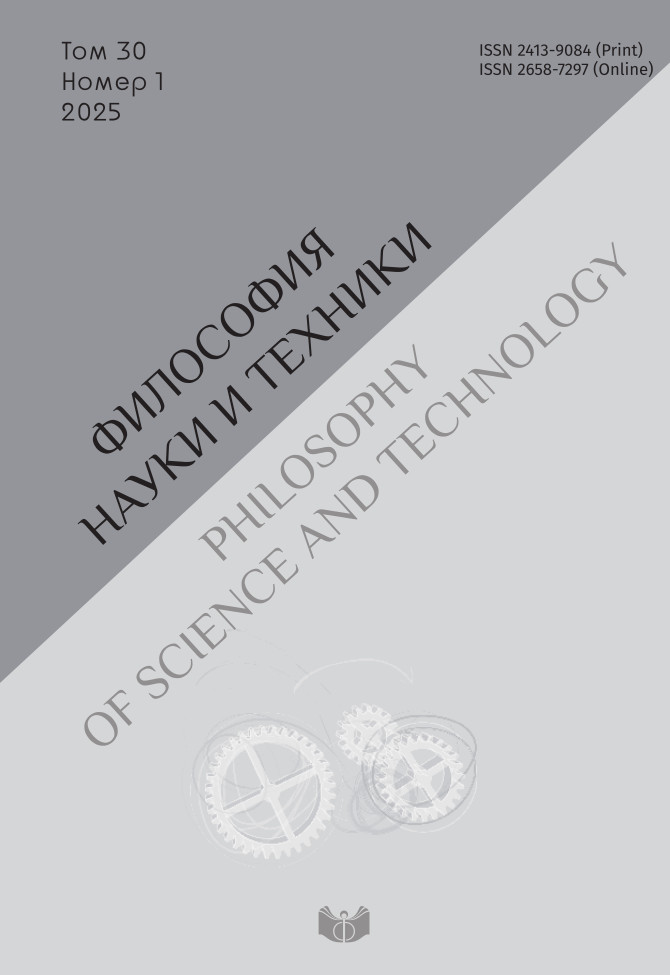Transformation of science in history and in the course of formation of future culture
DOI:
https://doi.org/10.21146/2413-9084-2025-30-1-124-134Keywords:
science, formation, development, transformation, genome of science, culture, thinking, cognition, research, factsAbstract
The article discusses the transformation of science that took place in history, as well as possible changes during the change of the culture of modernity to the next big culture, which the author calls “future culture”. Three starts of science are distinguished: the first, related to antiquity, when science was born for the first time in the Hellenistic period, the second, characteristic of the New Age, where science, in addition to knowledge, is formed as an institution of modernity, and the third, hypothetical, i.e. possible, but with a certain development of events. The first two starts of science are briefly characterized: the formation of the “genome of science” (the focus on understanding empirical phenomena, constructing ideal objects, and implementing correct thinking) and the inclusion of the genome of science in the Baconian project, which, starting in the 18th century, began to be quickly implemented, which had several important consequences: the practical orientation of natural science toward engineering and other applications, an explosion of scientific research and engineering developments, support for science first by kings and then by European nation states, the massification of science, the need to train scientists and engineers and change the consciousness of users (the “Enlightenment” project), the construction of natural science and engineering and the industry based on them, etc. The crisis of modernity and the formation of future culture are analyzed as important prerequisites for the third start of science. Although the future culture has not yet taken shape, the author expresses a number of ideas about the transformation of science: another reality will take the place of nature as the ontology of science, the understanding of the purpose of science will change (not providing knowledge for the activity of mastering nature, but a better understanding of what is happening, as well as the rational use of both nature and human activity); an important topic of scientific research will be the discussion of the conditions for saving life on Earth.











